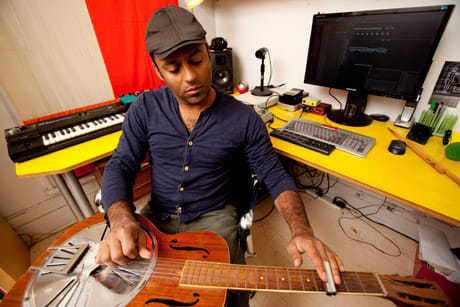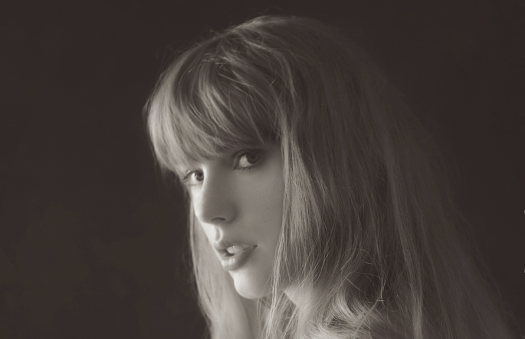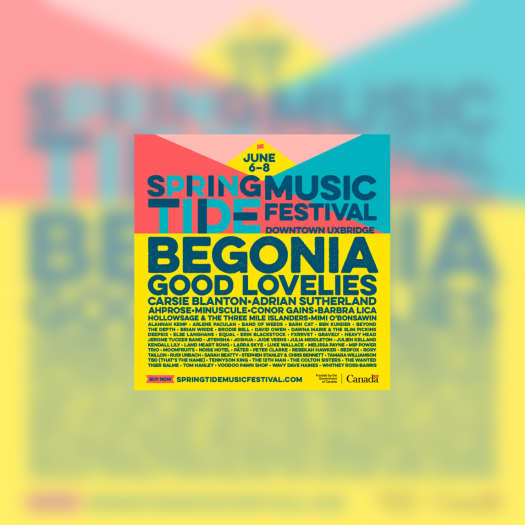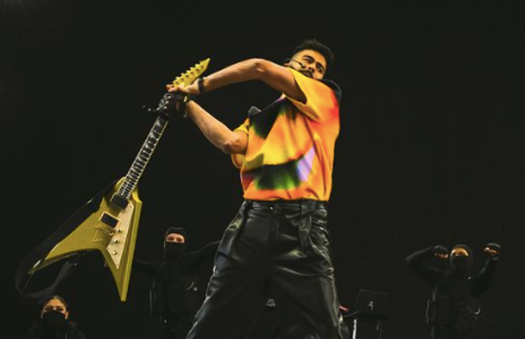Jeremy Petrus lives and produces music in a second-floor Montreal walk-up, right on one the city's most culturally affluent neighbourhoods, the Plateau. It's a long, dark, mostly quiet space on the mainline of Montreal's busy St. Denis Street, with a studio set up at the far end that overlooks the bars, restaurants, and boutiques below. Here, he spends much of his time dicing and sculpting sound.
Petrus considers himself first and foremost a designer, and his electronic music as Mossa is but a creative outlet of his design ideas. "Design is life," he says matter-of-factly as he shows me the modest room, which features little more than one synthesizer, a large computer screen, and some MIDI tools. "The design of sounds includes everything for me. I collect sounds when travelling, in the kitchen, in the bathroom. Sometimes I find percussion when I drop something down the stairs. I work with sounds that already exist, to reform them, treat them, smash them, to reconstruct them."
A sound designer by day who teaches at two of the city's universities, come evenings Jeremy Petrus switches gears and lets his rhythmic side loose as Mossa, an active participant of the micro-house underground that has spawned the likes of Akufen, Guillaume & the Coutu Dumonts, and numerous others in the past decade.
Petrus got his start as Mossa back in the '90s, and after several years abroad honing his chops in the French and Italian house scenes, he came back to Montreal, set up his own Complot label, and began releasing his own tracks - and those of others - in 2002. Since then, he's released two albums: 2006's Some Like It Raw on France's prestigious Circus Company imprint, and this summer's Festine, released on upstart Brooklyn label Thema.
For him, design really is a way of life, and the concepts and skills he has acquired as a designer have had a direct effect on the minimal amount of gear he keeps around. And the Mossa design of sound revolves around a creative process that teases beats out of sounds' second generations - other people's music and field recordings.
Sometimes it starts with a sound I hear somewhere," he says, "and then I go back and record it. I put in the software and then develop it organically. Once I get going, I can say I have my own way of doing things, but the initial spark is always something different every time."
He's also a multi-instrumentalist, but in a peculiar twist of fate those instruments are pieces he's careful never to incorporate into his music. "I think why I'm attracted to working with samples is precisely because I'm an instrumentalist," he explains. "I play the piano, guitar, drums, and others. I've been in a lot of bands. I like to work with melodies and make 'real' music too, but for me that fits in another sphere of my musical life, where I take on sound design contracts. But not in Mossa. I decided some time back that electronic music for me was going to be different from the instrumental music I use for work. And so I like working with music that's already done, and using that. I'm inspired by the piracy."
These days, Mossa is focused on the release party for his second album Festine, and for his upcoming MUTEK performance, which will be the venue where he debuts many of the album's tracks live for the first time.
Festine was, in Petrus's own words, "a very strange process." What initially began as a proposed EP for Brooklyn label Thema, which had previously released only vinyl singles for acts such as Torontonian Adam Marshall and Sweden's Mikael Stavöstrand, quickly turned into an offer to release the label's first full-length album. "I started sending some tracks to the boss at the label, and at some point he decided that he liked everything, and he couldn't pick."
As a result, Festine isn't so much a proper album as a collection of tracks showcasing where Mossa's mindset has been over the past few years. "It's a collection of very old tracks that I'd never finished, some tracks that were more recent that were originally meant for the EP, and then there tracks that I made after, knowing that we were going to do an album. So there are three layers to it. The old tracks are old, but I went back and revamped them, actualized them toward a different sound, fresher."
And yet, Festine works perfectly well as a cohesive listen. Mossa's skills over the years have developed a distinct, full-bodied sound that practically bursts at the seams with samples and jerky turns, and so the results are at once equally at home on the dance floor and in headphones.
Petrus considers himself first and foremost a designer, and his electronic music as Mossa is but a creative outlet of his design ideas. "Design is life," he says matter-of-factly as he shows me the modest room, which features little more than one synthesizer, a large computer screen, and some MIDI tools. "The design of sounds includes everything for me. I collect sounds when travelling, in the kitchen, in the bathroom. Sometimes I find percussion when I drop something down the stairs. I work with sounds that already exist, to reform them, treat them, smash them, to reconstruct them."
A sound designer by day who teaches at two of the city's universities, come evenings Jeremy Petrus switches gears and lets his rhythmic side loose as Mossa, an active participant of the micro-house underground that has spawned the likes of Akufen, Guillaume & the Coutu Dumonts, and numerous others in the past decade.
Petrus got his start as Mossa back in the '90s, and after several years abroad honing his chops in the French and Italian house scenes, he came back to Montreal, set up his own Complot label, and began releasing his own tracks - and those of others - in 2002. Since then, he's released two albums: 2006's Some Like It Raw on France's prestigious Circus Company imprint, and this summer's Festine, released on upstart Brooklyn label Thema.
For him, design really is a way of life, and the concepts and skills he has acquired as a designer have had a direct effect on the minimal amount of gear he keeps around. And the Mossa design of sound revolves around a creative process that teases beats out of sounds' second generations - other people's music and field recordings.
Sometimes it starts with a sound I hear somewhere," he says, "and then I go back and record it. I put in the software and then develop it organically. Once I get going, I can say I have my own way of doing things, but the initial spark is always something different every time."
He's also a multi-instrumentalist, but in a peculiar twist of fate those instruments are pieces he's careful never to incorporate into his music. "I think why I'm attracted to working with samples is precisely because I'm an instrumentalist," he explains. "I play the piano, guitar, drums, and others. I've been in a lot of bands. I like to work with melodies and make 'real' music too, but for me that fits in another sphere of my musical life, where I take on sound design contracts. But not in Mossa. I decided some time back that electronic music for me was going to be different from the instrumental music I use for work. And so I like working with music that's already done, and using that. I'm inspired by the piracy."
These days, Mossa is focused on the release party for his second album Festine, and for his upcoming MUTEK performance, which will be the venue where he debuts many of the album's tracks live for the first time.
Festine was, in Petrus's own words, "a very strange process." What initially began as a proposed EP for Brooklyn label Thema, which had previously released only vinyl singles for acts such as Torontonian Adam Marshall and Sweden's Mikael Stavöstrand, quickly turned into an offer to release the label's first full-length album. "I started sending some tracks to the boss at the label, and at some point he decided that he liked everything, and he couldn't pick."
As a result, Festine isn't so much a proper album as a collection of tracks showcasing where Mossa's mindset has been over the past few years. "It's a collection of very old tracks that I'd never finished, some tracks that were more recent that were originally meant for the EP, and then there tracks that I made after, knowing that we were going to do an album. So there are three layers to it. The old tracks are old, but I went back and revamped them, actualized them toward a different sound, fresher."
And yet, Festine works perfectly well as a cohesive listen. Mossa's skills over the years have developed a distinct, full-bodied sound that practically bursts at the seams with samples and jerky turns, and so the results are at once equally at home on the dance floor and in headphones.




